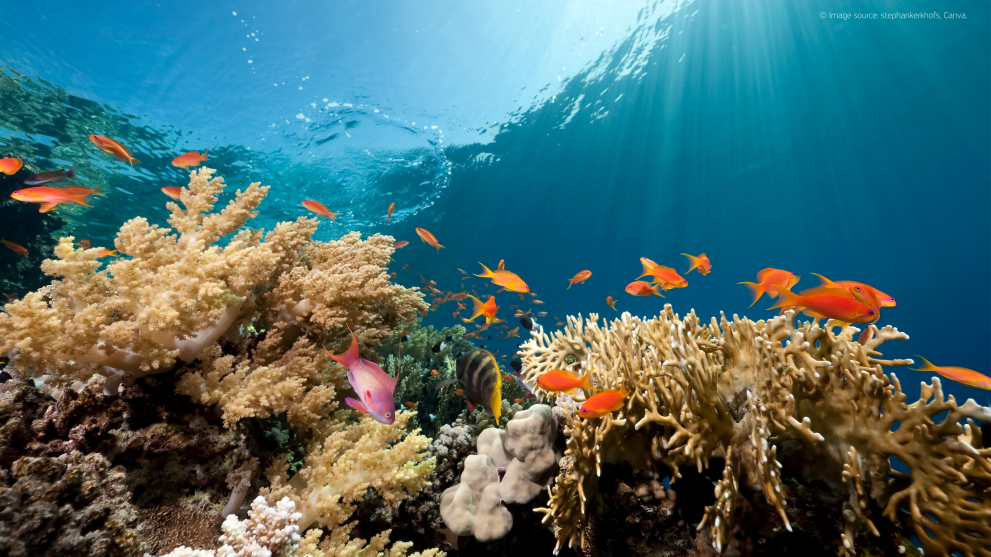
The oceans, covering over 70% of our planet’s surface, are an invaluable resource, essential for life on Earth. Sadly, pollution, climate change, and overfishing pose a serious threat to the marine environment. Rich in biodiversity, fish stocks, and minerals, the ocean’s resources are crucial for preserving ecosystems and supporting economic activities worldwide.
Fragmented policymaking across Europe emphasises these challenges, highlighting the urgent need for a cohesive approach to protecting and restoring our oceans. Responding to the need, the European Commission has adopted a European Ocean Pact - a unified framework for marine preservation, based on a wide range of contributions from stakeholders, citizens, and experts. The pact was announced by President von der Leyen in her political guidelines for the next European Commission (2024-2029). It is also on the agenda of the 3rd UN Ocean Conference in June 2025.
Under the Horizon Europe programme, the European Research Executive Agency (REA) is managing multiple projects that strengthen EU’s commitment to sustainable ocean governance. These projects cover a variety of topics, from biodiversity and the blue economy to expanding research efforts, developing strong governance, and increasing the resilience of coastal communities.
Protecting and restoring ocean health
From plankton to blue whales, each marine species plays a role in climate regulation and strengthens resilience of endangered ecosystems.
EU-funded project MARCO-BOLO connects global actors to improve marine biodiversity observation and management. It strengthens ocean health and governance by streamlining biodiversity processes – improving monitoring tools, integrating data, and offering guidance on information storage and sharing.
Coral ecosystems are especially vulnerable under increasing climate changes. Supported by the Marie Skłodowska-Curie Actions (MSCA) programme, the MOANA project explores ecosystems in South-Pacific oceanic islands, gathering information on ecologically and socio-economically important species.
Find out more about MARCO-BOLO and MOANA projects.
Boosting the EU’s Blue Economy
Oceans are a large part of the EU economy, crucial for energy production, food industry and transportation. Blockchain technologies developed by EU-backed SEA2SEE project enhance transparency in seafood traceability, fostering trust and engagement among stakeholders and consumers.
To ensure that countries lagging behind in research and innovation are catching up with the rest of the EU in the sector of Blue Economy, BCThubs is building Blue Culture Technology Excellence Hubs in Greece, Bulgaria and Malta. The project contributes to sustainable exploitation of underwater cultural heritage, balancing economic growth with cultural preservation. By fostering development of tourism and education, it boosts local economies.
Find out more about SEA2SEE and BCThubs.
Advancing ocean research, knowledge, skills and innovation
There is still a lot we don’t know about the ocean. The MPA EUROPE project closes some of the knowledge gaps. The project is identifying locations for marine protected areas in European seas – based on species biodiversity and oceanic carbon storage capacities.
Additionally, it provides data-driven classification of ecosystems and a range of maps for thousands of species, available in an online atlas. This knowledge supports achieving marine protection targets by 2030.
Research initiatives can often be hampered by lack of access to necessary infrastructure. The AQUARIUS project, continuing the legacy of its predecessor EurofleetPlus, provides marine scientists with access to vessels, observation platforms, drones and research facilities across Europe. The initiative boosts opportunities for smaller projects, enhances international knowledge exchange, and promotes research collaboration.
Find out more about MPA EUROPE and AQUARIUS.
Strengthening EU ocean diplomacy and international ocean governance
Collective management of oceans’ resource can significantly increase marine health and biodiversity. The EU-funded GES4SEAS supports marine governance by developing and implementing tools for ecosystem-based management. Through a common framework, the project supports policies on regional, national and European level.
To ensure efficient use of ocean resources, the PERMAGOV project evaluates how institutional barriers and e-governance tools influence the implementation of EU marine policies. Gathering input from maritime industries, NGOs, researchers and policymakers, PERMAGOV helps overcome barriers that limit policy performance.
Find out more about GES4SEAS and PERMAGOV.
Supporting coastal, island communities and outermost regions
Coastal communities are the first to be impacted by rising sea level and rapid climate changes. To combat this issue, REST-COAST focuses on boosting coastal resilience through large scale restoration efforts that reduce erosion, prevent flooding, and protect biodiversity. Pilot projects across major European seas aim to improve coastal services and strengthen restoration and governance.
Healthy and productive fisheries are vital for the prosperity of coastal communities. SEAwise focuses on ecosystem-based fisheries management, which aims to balance social and economic benefits with environmental impacts. Drawing from case studies across Europe, the project helps us understand the effect of fisheries on coastal communities.
Find out more about REST-COAST and SEAwise.
Read more
EU funding for environmental research and innovation projects
EU's contribution for sustainable oceans
From vulnerability to viability: How EU-funded projects help regions on the climate crisis frontline
Clean beaches and seas: How EU research projects tackle marine pollution
Details
- Publication date
- 4 June 2025
- Author
- European Research Executive Agency
